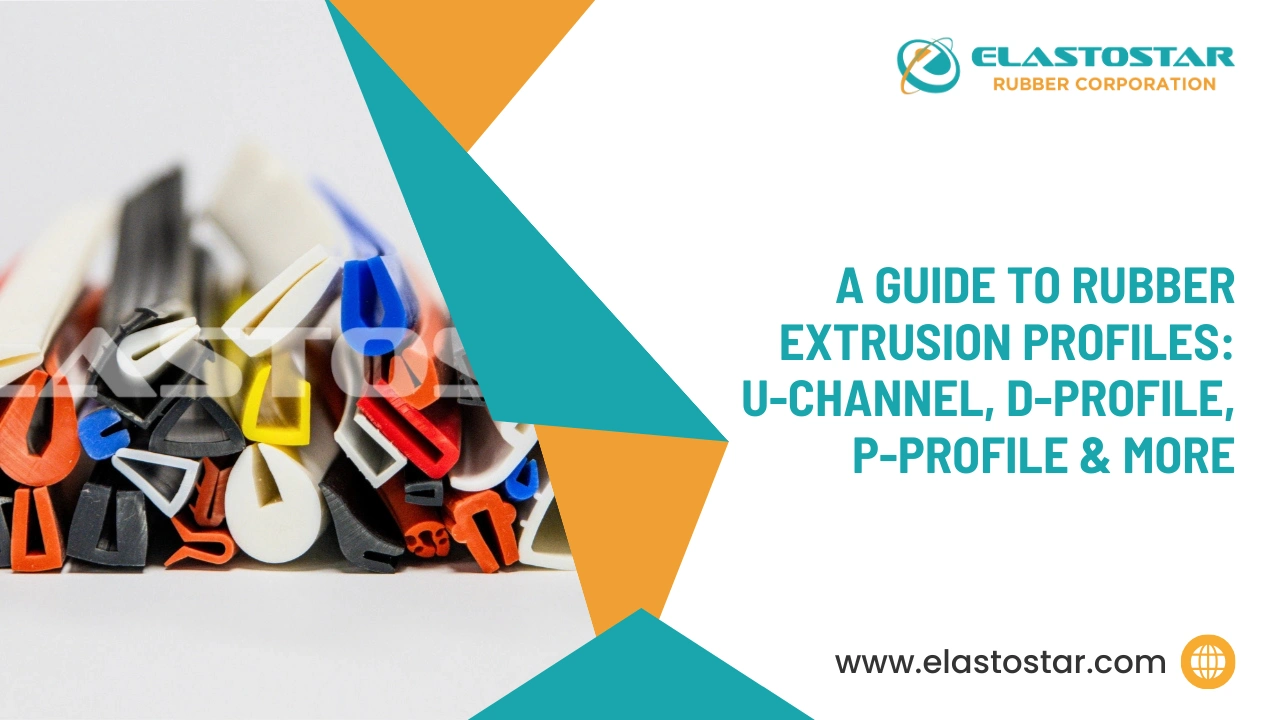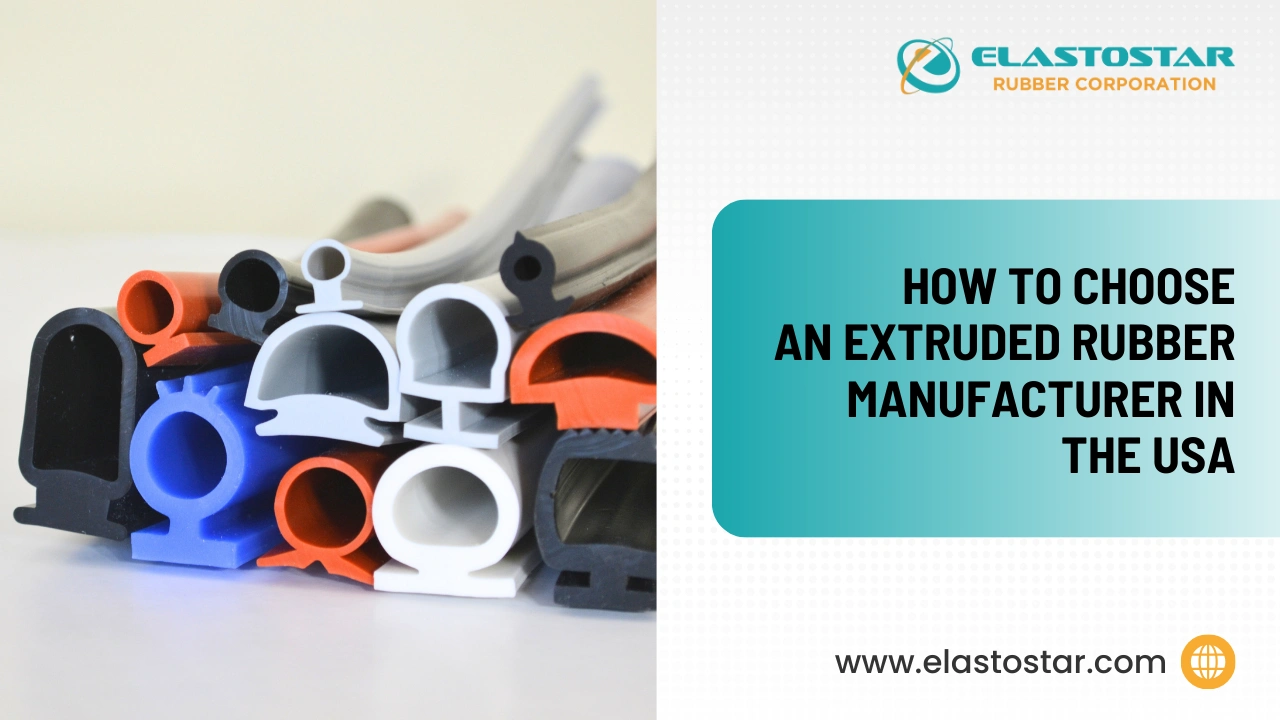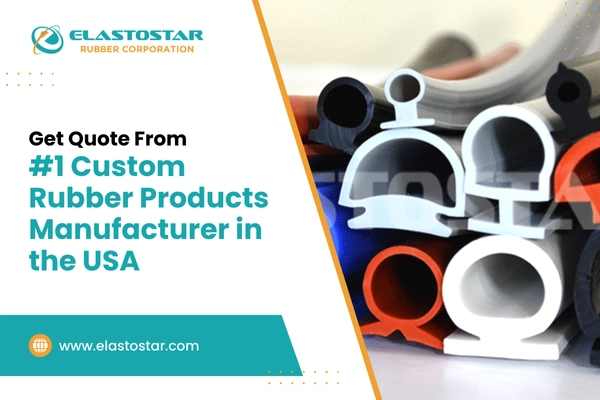Silicone rubber seals are important components in the electrical industry, offering vital protection for sensitive electrical equipment. These seals effectively guard against moisture, dust, and environmental factors that can lead to electrical failures. By providing a reliable barrier, silicone rubber seals enhance the longevity and performance of electrical components, ensuring they operate efficiently in various conditions.
One of the significant advantages of silicone rubber is its use as a rubber insulator, which is crucial for preventing unwanted conductivity. Understanding the relationship between rubber and electricity is essential, as these seals help minimize the risk of short circuits and malfunctions.
As we explore the various types and applications of silicone rubber seals in the electrical industry, we’ll highlight how they contribute to system reliability and safety, making them a preferred choice for manufacturers and engineers alike.
Table of Contents
What are the Benefits of Silicone Rubber Seals in Electrical Applications?
Silicone rubber seals offer several advantages that make them essential in electrical applications.
1. High-Temperature Resistance
Silicone rubber seals are ideal for high-temperature environments, making them one of the best insulators for electricity. They can endure temperatures ranging from -60°F to over 500°F, ensuring that sensitive electrical components remain protected and functional in demanding applications.
2. Moisture and Dust Protection
These seals provide excellent protection against moisture and dust ingress, significantly reducing the risk of electrical failures. Their ability to create a tight seal ensures that the relationship between electricity and rubber remains effective, safeguarding critical electrical systems from contamination.
3. Chemical Resistance
Silicone rubber demonstrates remarkable resistance to various chemicals commonly found in electrical environments, including oils and solvents. This quality enhances the durability and reliability of silicone rubber gaskets, ensuring they maintain their performance even under harsh conditions.
5 Types of Silicone Rubber Seals Used in the Electrical Industry
Silicone rubber seals come in various forms, each designed to meet specific needs in the electrical industry.
1. Silicone Gaskets
Silicone gaskets are frequently used in electrical enclosures and junction boxes to prevent moisture and dust ingress. They provide a reliable seal that protects sensitive components from environmental factors, making them essential for maintaining optimal performance.
2. Silicone Sealing Rings
Silicone sealing rings are effective for creating airtight seals around electrical connectors and components. These rings help prevent contaminants from entering critical areas, ensuring reliable functionality in various applications, including in conjunction with rubber insulator requirements.
3. Silicone Rubber Bumpers
Silicone rubber bumpers provide cushioning for electrical components and help absorb vibrations. They protect sensitive equipment from damage while also acting as seals to keep dust and moisture out, further enhancing the reliability of the automotive seal applications.
4. Silicone Foam Seals
Silicone foam seals are flexible and can conform to irregular surfaces, making them ideal for electrical systems where standard seals may not fit. They offer excellent thermal insulation and sound dampening properties, contributing to a quieter operation in sensitive electrical equipment.
5. Custom Silicone Seals
Custom-designed silicone seals can be tailored to meet specific requirements of electrical applications. These seals ensure optimal sealing performance for unique designs and configurations, which is especially important when integrating with soft seal rubber products or specialized equipment.
Choosing Elastostar Rubber Corporation for your silicone rubber seal needs ensures you receive high-quality products designed for reliability and performance. With a commitment to excellence, we offer a range of silicone sealing rings and other sealing solutions that cater to the unique demands of the electrical industry.
Top 4 Applications of Silicone Rubber Seals in the Electrical Industry
Silicone rubber seals are widely used in various applications within the electrical industry due to their protective and insulating properties.
1. Sealing Electrical Connectors
Silicone rubber seals are essential for protecting electrical connectors from contaminants such as dust, moisture, and chemicals. Acting as a rubber insulator, these seals ensure that connections remain intact and reliable, reducing the risk of failures in electrical systems. Their flexibility allows for effective sealing in various connector designs, enhancing the durability of soft seal rubber products.
2. Insulating Electrical Components
In electrical applications, silicone seals play a critical role in insulating components. They help prevent shorts and electrical arcing by providing a non-conductive barrier. This function is vital for maintaining safety and efficiency, especially in environments where exposure to moisture or dust is common. The use of insulating rubber helps to safeguard sensitive equipment, ensuring reliable operation.
3. Protecting Circuit Boards
Silicone rubber gaskets are commonly used to protect circuit boards from moisture and dust, which can hinder functionality and lead to failures. By creating a protective seal around sensitive components, silicone gaskets ensure optimal performance and longevity. In this context, silicone sealing rings are particularly effective, providing a robust barrier that maintains the integrity of the circuit board.
4. Housing for Electrical Systems
Silicone seals are also utilized in enclosures for electrical systems, providing a strong barrier against environmental elements. These seals help prevent the ingress of moisture, dust, and other contaminants, essential for maintaining the integrity of electrical systems in both indoor and outdoor applications. Their durability ensures that enclosures remain effective over time, protecting sensitive equipment from harsh conditions.
Why Choose Silicone Rubber Seals Over Other Materials?
Silicone rubber seals provide several advantages that make them a top choice in electrical applications.
1. Longevity and Reliability
Silicone rubber offers a longer lifespan compared to many other materials used for seals in electrical applications. Unlike traditional materials, silicone maintains its integrity even under extreme conditions, making it ideal for applications where rubber and electricity intersect. This reliability reduces the need for frequent replacements, ultimately contributing to the efficiency of electrical systems.
2. Versatility
The versatility of silicone seals allows them to accommodate various shapes and sizes, which is crucial in the electrical industry. They can be effectively used in a range of applications, including silicone sealing rings for connectors and rubber silicone seals for enclosures. This adaptability ensures a snug fit in diverse configurations, making silicone a preferred choice for manufacturers.
3. Cost-Effectiveness
While the initial investment in silicone seals may be higher than that of other materials, their durability and reduced maintenance needs make them a cost-effective solution over time. By minimizing the frequency of replacements and repairs, silicone seals can significantly lower overall operational costs, making them an economical choice for enhancing the performance of insulating rubber in electrical applications.
Comparison of Seal Materials
| Material | Temperature Resistance | Chemical Resistance | Moisture Protection | Longevity |
| Silicone Rubber | High | Excellent | Strong | Long-lasting |
| Neoprene | Moderate | Good | Moderate | Moderate |
| Nitrile Rubber | Moderate | Excellent | Good | Moderate |
Recommended Reads
- Aerospace Silicone Rubber Seal & Gaskets Products
- Sponge Silicone Rubber Products: Benefits & Applications
- Silicone Gaskets vs Neoprene: What to Choose?

Conclusion
Silicone rubber seals are essential in the electrical industry, providing crucial protection against moisture, dust, and chemicals. Their high-temperature resistance and durability make them effective insulators for electrical applications, contributing to the longevity and reliability of components like connectors and circuit boards. The versatility of these seals allows them to adapt to various shapes and sizes, making them a preferred choice for enhancing the performance and safety of electrical systems while reducing maintenance costs.
FAQs
Is rubber a good conductor of electricity?
No, rubber is not a good conductor of electricity; it is considered an excellent insulator. Rubber’s properties help resist the flow of electrical current, making it ideal for electrical applications where safety is a concern.
What is a good insulator for electricity?
Materials like silicone rubber, glass, and plastic are good insulators for electricity. These materials effectively resist the flow of electrical current, helping to prevent short circuits and ensuring the safety of electrical systems.
What is the use of rubber in the electrical industry?
At Elastostar Rubber Corporation, rubber is widely used in the electrical industry due to its excellent insulating properties. It is found in cable sheathing, gaskets, and seals that protect sensitive electrical components from moisture and dust. The relationship between rubber and electricity enhances safety and prevents failures in various applications.
What are the uses of silicone rubber?
Silicone rubber is used in a variety of applications, including seals, gaskets, and insulators. Its flexibility, durability, and resistance to extreme temperatures make it suitable for both electrical and automotive applications, among others.
What is silicone rubber sealant used for?
Silicone rubber sealant is used for sealing gaps and joints to prevent moisture ingress and air leaks. It is commonly applied in construction and electrical applications to provide a durable, waterproof barrier. Elastostar Rubber Corporation offers high-performance silicone sealants designed for various applications.
Is silicone rubber a good electrical insulator?
Absolutely, silicone rubber is recognized as an excellent electrical insulator. Its high dielectric strength and resilience to environmental factors make it ideal for protecting critical components in electrical systems. Silicone sealing rings and other silicone products are specifically designed to enhance the durability and reliability of electrical applications. Contact us for high-quality silicone solutions that ensure optimal performance.




